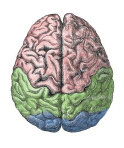The biases of pop psychology
 I just found this great piece at Scientific American that makes a fascinating point about how pop psychology books that inform us about our biases tend not to inform us about our most important bias – the effect of making things into stories – despite the fact that they rely on it to get their message across
I just found this great piece at Scientific American that makes a fascinating point about how pop psychology books that inform us about our biases tend not to inform us about our most important bias – the effect of making things into stories – despite the fact that they rely on it to get their message across
The piece starts by quoting economist Tyler Cowen:
“There’s the Nudge book, the Sway book, the Blink book… [they are] all about the ways in which we screw up. And there are so many ways, but what I find interesting is that none of these books identify what, to me, is the single, central, most important way we screw up, and that is, we tell ourselves too many stories, or we are too easily seduced by stories. And why don’t these books tell us that? It’s because the books themselves are all about stories. The more of these books you read, you’re learning about some of your biases, but you’re making some of your other biases essentially worse. So the books themselves are part of your cognitive bias.”
The crux of the problem, as Cowen points out, is that it’s nearly impossible to understand irrationalities without taking advantage of them. And, paradoxically, we rely on stories to understand why they can be harmful.
‘Great story!’ you might say, instantly causing a cognitive bias loop from which you might never emerge.
Link to ‘The Paradox of Popular Psychology’ (via @JNNP_BMJ)


Tom Stafford's Blog
- Tom Stafford's profile
- 13 followers



